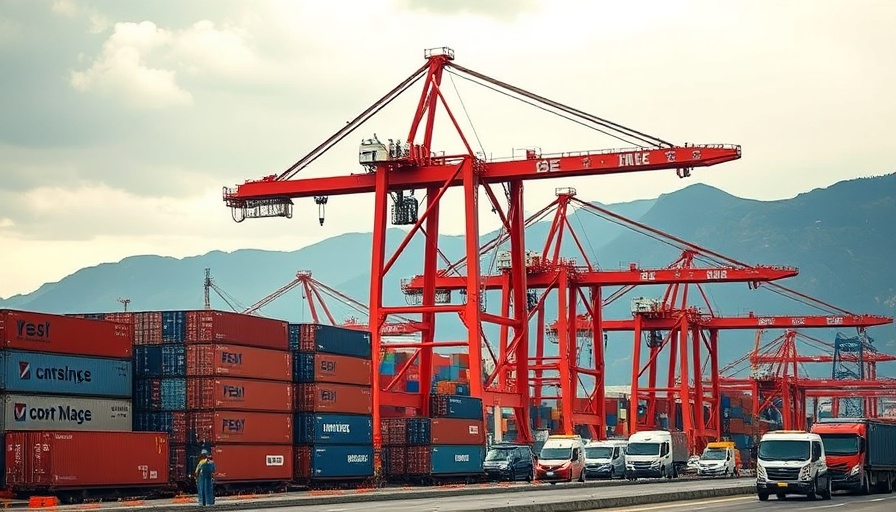
China's Retaliatory Tariffs: A New Chapter in Trade Tensions
On March 8, 2025, China announced its plans to impose steep retaliatory tariffs on select Canadian agricultural products in response to Canada's recent tariffs on Chinese imports. Starting March 20, Canadian rapeseed oil and related goods will face a staggering 100% levy, while a 25% tariff will be added to aquatic products and pork. This latest move exacerbates the growing trade tensions not just between China and Canada, but among multiple countries, including the United States.
The Cycle of Tariff Impositions
This back-and-forth in tariff hikes ignites discussions about the nature and consequences of international trade dynamics. Canada had previously placed 100% tariffs on Chinese electric vehicles and 25% on steel and aluminum imports, reflecting an alignment with U.S. interests and echoing similar actions by the EU. Such a move has led Beijing to retaliate, showcasing how interconnected global economies can swiftly transform into battlegrounds for political and economic disputes.
Implications for Canadian Agriculture and Trade
As one of Canada's top exports, rapeseed oil plays a critical role in the nation’s agricultural economy, and these tariffs may have debilitating effects on farmers and producers. In 2024 alone, exports to China were valued at over $3.7 billion, a stark figure that illustrates how deeply intertwined Canadian industries are with Chinese demand. Analysts suggest that the timing of this retaliation serves as a reminder to Canada about the economic costs associated with closely aligning its trade policy with the U.S.
The Broader Context of Global Trade Wars
The imposition of these tariffs is not simply an isolated incident, but part of a larger strategy by China, aimed at dissuading countries from following U.S. demands regarding additional tariffs on Chinese goods. China's state media emphasized that the tariffs are not only a countermeasure but also act as a warning to Canada and Mexico, highlighting the complexities of modern trade relations where actions are never without retributions.
What's Next? Future Trade Dynamics
Looking forward, it is crucial for all parties involved to engage in dialogue to defuse these tensions. Relations between Canada and China could potentially evolve if a change in government occurs in Canada, modeled after past instances like Australia’s shifting relationship with Beijing. As financial markets and agriculture seasons react to these tariffs, understanding the broader implications is vital for taxpayers and stakeholders alike.
Conclusion: Considering Your Tax Implications
As the global trade landscape continues to transform, Canadian taxpayers and small business owners should remain vigilant. Understanding these international dynamics is imperative to better navigate tax planning and ensure they can leverage deductions effectively amidst changing economic climates. If you want to explore savvy tax deductions that might benefit your situation, consider adjusting your strategies today.
 Add Row
Add Row  Add
Add 




Write A Comment